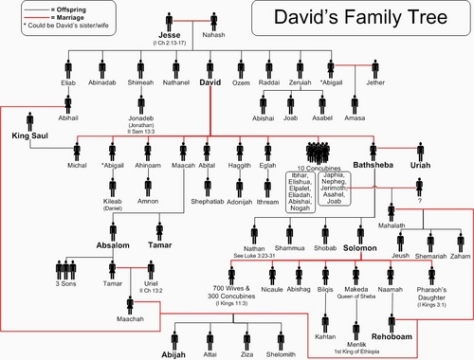
The Depth's in the Details (CaD 2 Sam 23) – Wayfarer
…and Uriah the Hittite.
2 Samuel 23:39 (NIV)
This past weekend was our annual time at the lake with our friends Kevin and Becky. We’ve been walking the journey together for many years and our time together at the lake is always, for us, one of the pinnacles of the summer season. When Kev and Beck are here, the conversation just seems to flow non-stop from one subject to another from early morning until deep into the night’s watch.
With all of the conversations we’ve enjoyed through all of the years, you’d think we would run out of things to talk about. The truth of the matter is that the conversation simply gets deeper, more transparent, and more intimate. Late on Saturday evening, as we sat on the deck under the light of the tiki torches, the four of us were led into what I sensed was a God-ordained conversation about deeply personal matters. It was a subject we’d touched on multiple times before, but this evening we dove into details that led to what may very well be a powerfully transformational moment.
I’ve found a parallel experience in reading God’s Message day after day through the years. I can read each day, and even have read through the entirety multiple times, and I keep coming back for more. You’d think it would get old. You’d wonder why I keep reading through it. And yet, it’s a lot like conversations with Kev and Beck: It just gets deeper, more transparent, and more intimate. And sometimes you hit upon a detail that you’ve read before, but it never really registered.
So it was today that I was reading through what seems to most readers a boring list of strange, ancient names thrown into the appendices of David’s biography. This particular list was a list of men who were David’s elite warriors. These warriors were David’s special ops, his SEALs, his Rangers, his Delta Team, and his Green Berets. They were the cream of the warrior crop and their exploits were legendary in their day. And, as I’m reading through the list thanking God that most of these names were lost to antiquity, I land upon the final name in the list: Uriah the Hittite.
Uriah the Hittite, the husband of Bathsheba.
Uriah the Hittite, the man David tried to deceive to cover up his adultery.
Uriah the Hittite, whom David conspired to murder to avoid public shame.
Uriah the Hittite, whose own general betrayed him on the king’s orders.
When I read through the story of David and Bathsheba, Uriah has always been a bit of a supporting cast member. You don’t give him a lot of thought. Somehow, the realization that Uriah was part of David’s “Mighty Men,” makes David’s conspiracy all the more damnable. Uriah was not a schmuck. He was well known to David. They’d fought together. Uriah had risked his life for David. He was one of the best. And David was willing to consider his own man as expendable, collateral damage in the cover-up of his personal sin.
Sometimes the real story is in the details. Even as human beings sharing life together, what makes our community and conversation transformational is found in the depth and detail of our sharing. Today, I’m thinking about people who appear to plod through life’s journey on broad super highways of bland generalities and surface conversations, zipping by on cruise control but never moving closer to real relationships and transformational conversations. Today, I’m thankful for our good companions on this sojourn who navigate with us the rustic and rutty back roads of the soul. It is difficult and slow-going, for sure, but ultimately I’ve found that it leads to places of increasing depth, meaning, and intimacy that many, tragically, may never experience.
A Note to Readers
I’m taking a blogging sabbatical and will be editing and re-publishing my chapter-a-day thoughts on David’s continued story in 2 Samuel while I’m taking a little time off to focus on a few other priorities. Thanks for reading.
Today’s post was originally published in May 2014.

If you know anyone who might be encouraged by today’s post, please share.

























